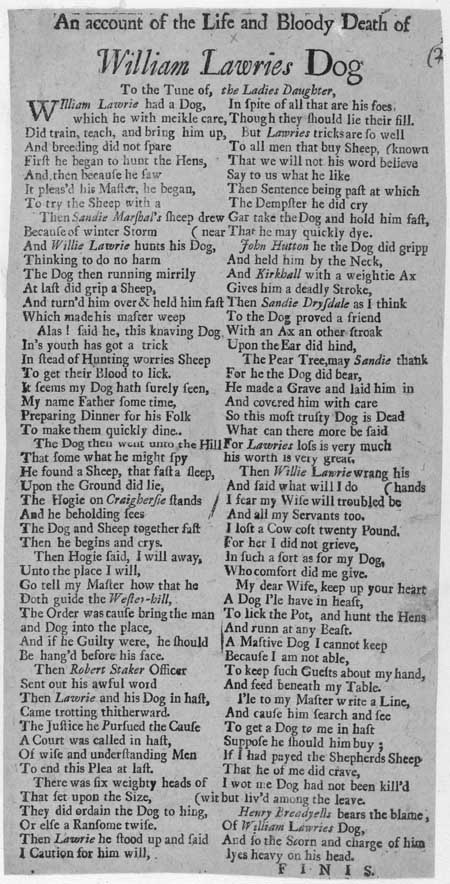Commentary
Verse 1 : 'William Lawrie had a Dog, / which he with meikle care, / Did train, teach and bring him up, / And breeding did not spare / First he begun to hunt the Hens, / And then because he saw / It pleas'd his Master, he began / to try the Sheep with a.' The ballad was to be sung to the tune of 'The Ladies Daughter'. Although it may appear that this verse is unfinished, 'with a' is more likely the poet's or printer's orthography for withal, meaning besides or as well. This ballad is the story of a dog that has a predilection for killing sheep rather than hunting wild animals, and which is eventually beheaded for its crimes. These are not the only Scottish verses to deal with the public execution of a dog: 'The Dying Words of Bonnie Heck, a Greyhound in the Shire of Fife' is an anonymous pastiche on broadsides that printed the supposed last speeches of condemned criminals. It is narrated by a greyhound that is about to be hanged. Early ballads were dramatic or humorous narrative songs derived from folk culture that predated printing. Originally perpetuated by word of mouth, many ballads survive because they were recorded on broadsides. Musical notation was rarely printed, as tunes were usually established favourites. The term 'ballad' eventually applied more broadly to any kind of topical or popular verse.
View Transcription | Download PDF Facsimile
|
 |
Probable date of publication:
1701 shelfmark: Ry.III.a.10(025)
 View larger image
View larger image
|


